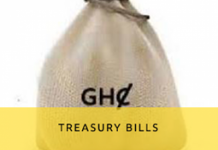The Financial Action Task Force (FATF) is an intergovernmental body that combats threats to the financial system’s integrity, including money laundering and terrorism financing.
When a country is placed on the FATF’s grey list, it signals a commitment to addressing strategic deficiencies in its anti-money laundering (AML) and counter-terrorism financing (CTF) regimes.

However, this listing has far-reaching implications for a country’s economy, governance, and international relations.
To be removed from the grey list, countries must take comprehensive measures to address identified flaws in their AML and CTF systems.
This often involves legislative reforms, strengthened regulatory frameworks, and enhanced enforcement procedures.
The FATF regularly reviews its criteria for listing countries and may remove them from the list once they have resolved the identified issues.
Currently, 21 countries are on the FATF’s grey list, including 12 African nations:
- Burkina Faso (February 2021)
- Senegal (February 2021)
- South Sudan (June 2021)
- Mali (October 2021)
- Democratic Republic of Congo (October 2022)
- Mozambique (October 2022)
- Tanzania (October 2022)
- Nigeria (February 2023)
- South Africa (February 2023)
- Cameroon (June 2023)
- Kenya (February 2024)
- Namibia (February 2024)
These countries must take concrete actions to address their AML and CTF deficiencies, including: Legislative reforms, Strengthened regulatory frameworks, Enhanced enforcement procedures
The FATF updates its lists three times a year, and countries can be added or removed based on their progress in addressing strategic deficiencies.
Jamaica recently made significant progress in reforming its AML/CFT system and was subsequently removed from the list.
Institutional and governance changes are often driven by a country’s placement on the grey list.
The FATF’s grey list serves as a catalyst for countries to strengthen their AML and CTF regimes, ultimately contributing to a more secure global financial system.
























































![[FREE FREE MONEY] Predict and Win a Guaranteed GH¢200 From Us EVERY WEEK](https://wordpress.ghanatalksradio.com/wp-content/uploads/2022/02/Predict-and-Win-Final-09-03-2021-218x150.jpg)
![[Predict & Win – 8th/Oct.] WIN A Guaranteed ¢200 From Us This Week](https://wordpress.ghanatalksradio.com/wp-content/uploads/2021/10/maxresdefault-16-218x150.jpg)
![[Predict & Win – 2nd] WIN A Guaranteed ¢200 From Us This Week](https://wordpress.ghanatalksradio.com/wp-content/uploads/2021/09/maxresdefault-50-218x150.jpg)
![[Predict & Win – 25th] WIN A Guaranteed ¢200 From Us This Week](https://wordpress.ghanatalksradio.com/wp-content/uploads/2021/09/maxresdefault-36-218x150.jpg)
![[Predict & Win – 18th] WIN A Guaranteed ¢200 From Us This Week](https://wordpress.ghanatalksradio.com/wp-content/uploads/2021/09/maxresdefault-23-218x150.jpg)






![[National cathedral] See full list of churches that have contributed since 2018](https://wordpress.ghanatalksradio.com/wp-content/uploads/2020/09/Ghana-National-Cathedral-GhanaTalksRadio-100x70.jpg)



